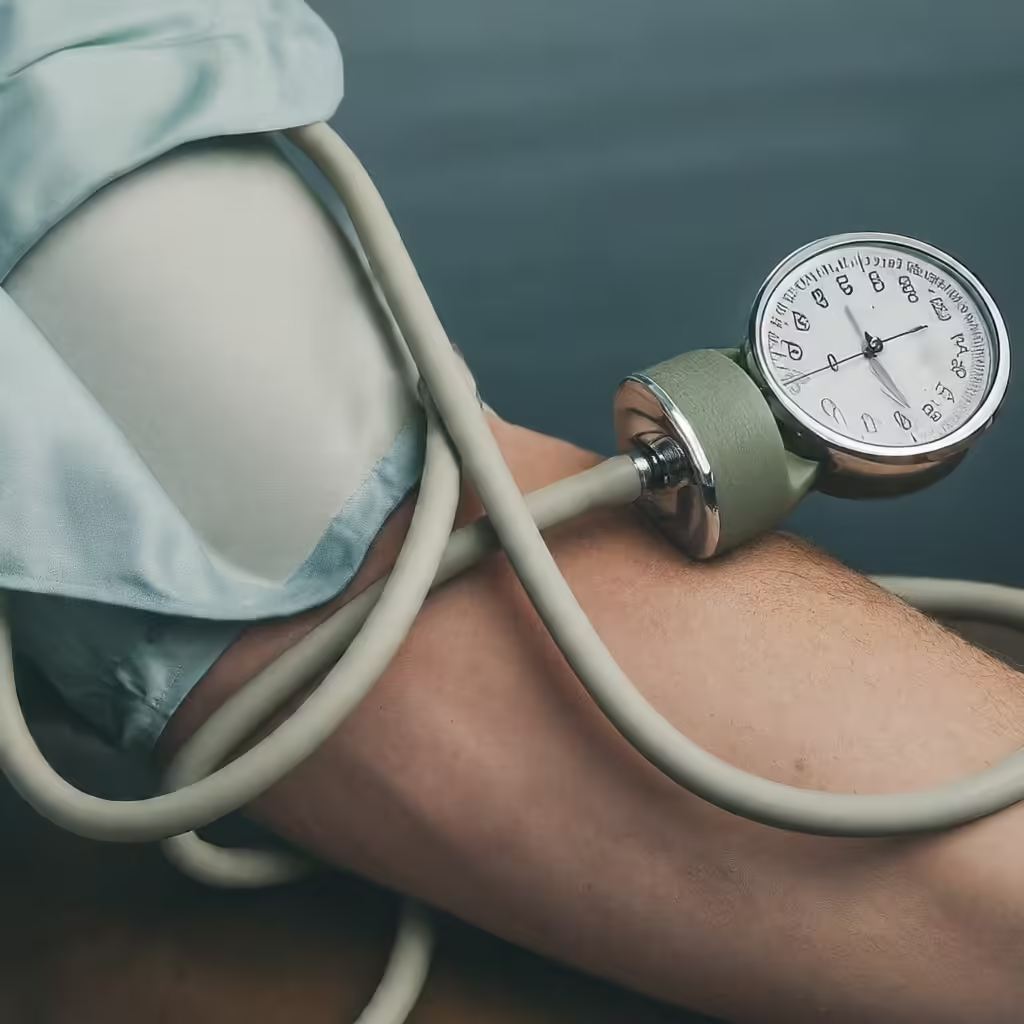Are you one of those who can’t start the day without a cup (or four) of coffee? For many, caffeine is the fuel that powers them through the day, whether it comes from coffee, tea, or energy drinks. But how much caffeine is too much? Recent research suggests that consuming more than 400 milligrams of caffeine daily might be putting your heart health at risk. This new study sheds light on how excessive caffeine intake could elevate blood pressure and heart rate, potentially leading to cardiovascular disease.
In this article-
What It Caffeine and How It Works
Caffeine is a natural stimulant most commonly found in coffee, tea, and various other plants. It belongs to a class of compounds known as xanthines, which exert a stimulating effect on the central nervous system. By blocking the action of adenosine, a neurotransmitter responsible for promoting sleep, caffeine helps keep you awake and alert. This is why your morning cup of coffee can help shake off the grogginess and make you feel more focused and energized.
However, caffeine does more than just ward off sleepiness. It also increases the release of other neurotransmitters, such as dopamine and norepinephrine, which can enhance mood, boost metabolism, and improve physical performance. But with these benefits come potential risks, especially when consumed in large quantities over time.
Common Sources of Caffeine
Caffeine is present in a wide variety of beverages and foods, making it easy to consume more than you might realize. Here’s a breakdown of common sources of caffeine and their typical caffeine content:
- Coffee: One cup (240 ml) of brewed coffee contains approximately 95 mg of caffeine.
- Tea: A cup of black tea has about 47 mg, while green tea has around 28 mg of caffeine.
- Energy Drinks: These beverages can contain anywhere from 70 to 200 mg of caffeine per serving, depending on the brand.
- Soft Drinks: A can of cola typically has around 34 mg of caffeine.
- Chocolate: Dark Chocolate contains about 12 mg of caffeine per ounce, while milk chocolate has around 6 mg per ounce.
- Caffeine Pills: Over-the-counter caffeine tablets can contain up to 200 mg of caffeine per pill.
Given the widespread presence of caffeine in everyday products, it’s easy to see how your intake can quickly add up.
Caffeine’s Impact on Cardiovascular Health
Caffeine’s stimulating effects aren’t limited to your brain. They also extend to your cardiovascular system. When you consume caffeine, it increases the release of catecholamines, which are hormones like adrenaline that prepare your body for physical exertion. This leads to an increase in heart rate and blood pressure, a response that can be beneficial in short bursts but potentially harmful over time.
A recent study presented at the ACC Asia 2024 conference in New Delhi, India, highlighted the risks associated with high caffeine consumption. According to the findings, individuals who regularly consume over 400 mg of caffeine daily—a quantity roughly equivalent to four cups of coffee—are at a higher risk of developing heart disease.
How Much Is Too Much?
For their study, researchers evaluated 92 individuals aged 18 to 45 who did not initially have high blood pressure. These participants were regular consumers of caffeinated drinks, typically coffee, tea, and energy drinks. The study found that nearly 20% of participants consumed more than the recommended 400 mg of caffeine each day. The research pointed out that this excessive intake can disrupt the autonomic nervous system, leading to sustained increases in heart rate and blood pressure.
What Is Blood Pressure?
Blood pressure is the force exerted by circulating blood against the walls of the body’s arteries, the major blood vessels in your body. It is a crucial indicator of cardiovascular health. Blood pressure readings consist of two numbers: systolic and diastolic pressure.
- Systolic Pressure: This is the higher number and measures the pressure in your arteries when your heart beats.
- Diastolic Pressure: This is the lower number and measures the pressure in your arteries between heartbeats, when your heart is at rest.
A normal blood pressure reading is typically around 120/80 mmHg. When blood pressure consistently stays above this level, it is classified as hypertension, or high blood pressure.

Why High Blood Pressure Is Dangerous
High blood pressure, or hypertension, is often called the “silent killer” because it typically has no symptoms until significant damage has been done to the heart and arteries. Over time, elevated blood pressure can cause the arteries to harden and narrow, a condition known as atherosclerosis, which increases the risk of heart attacks, strokes, and other cardiovascular diseases.
The heart itself is also affected. When the heart is forced to pump against higher pressure in the arteries, it must work harder, leading to the thickening of the heart muscle and eventual heart failure. High blood pressure can also damage the kidneys, leading to chronic kidney disease, and contribute to cognitive decline and dementia.
Hidden Dangers of High Blood Pressure
How Caffeine Influences Blood Pressure
The new study underscores the potential dangers of excessive caffeine consumption, particularly its role in raising blood pressure. When consumed in large amounts, caffeine can trigger a temporary spike in blood pressure by constricting blood vessels and stimulating the heart to pump faster. While occasional consumption may not have lasting effects, chronic intake of high levels of caffeine could lead to sustained hypertension.
In the study, participants who consumed more than 400 mg of caffeine daily experienced significant increases in blood pressure, especially after physical exertion. This suggests that over time, the body’s ability to regulate blood pressure may be compromised, leading to a higher risk of developing cardiovascular conditions.
The Long-Term Risks of Hypertension
If left untreated, hypertension can lead to several life-threatening conditions, including:
- Coronary Artery Disease: The narrowing or blockage of the coronary arteries, which supply blood to the heart muscle.
- Heart Failure: A condition where the heart is unable to pump enough blood to meet the body’s needs.
- Stroke: A sudden loss of brain function due to the interruption of blood flow to the brain.
- Chronic Kidney Disease: Progressive loss of kidney function over time, often due to damaged blood vessels.
- Dementia: Cognitive decline and memory loss linked to damage in the brain’s blood vessels.
Given these risks, managing blood pressure through lifestyle changes and, if necessary, medication is crucial for long-term health.
How to Enjoy Caffeine Safely
Moderation Is Key
While the study underscores the risks of excessive caffeine, it’s important to note that moderate consumption can still offer health benefits. Experts recommend keeping track of your daily caffeine intake, engaging in regular exercise, following a balanced diet, and avoiding tobacco and excessive alcohol to maintain healthy blood pressure.
Know Your Limits
It’s essential to be aware of how much caffeine you’re consuming each day. This can be challenging given the variety of sources, but a good rule of thumb is to keep your intake below 400 mg per day. This is roughly the amount found in four cups of coffee, 10 cans of soda, or two energy drinks.
If you find that you’re relying on caffeine to get through the day, it may be time to reassess your habits. Consider cutting back gradually to avoid withdrawal symptoms like headaches, fatigue, and irritability.
Listen to Your Body
Kristin Kirkpatrick, a registered dietitian with the Cleveland Clinic, advises that individuals listen to their bodies when it comes to caffeine consumption. Since the effects of caffeine can vary from person to person, it’s essential to monitor how you feel after drinking coffee, tea, or energy drinks. Some people may be more sensitive to caffeine’s effects on heart rate and blood pressure, while others may tolerate it well.
Opt for Nutrient-Dense Sources
Not all caffeine sources are created equal. Coffee and tea are among the best ways to consume caffeine because they contain other bioactive compounds that offer health benefits. For example, coffee is rich in antioxidants, which help fight inflammation and protect against chronic diseases. Tea, particularly green tea, contains polyphenols that have been shown to improve heart health and support weight loss.
On the other hand, energy drinks and sodas often come loaded with added sugars and artificial ingredients, which can contribute to other health issues like obesity and diabetes. If you’re looking to cut down on caffeine, consider switching to lower-caffeine options like herbal teas or decaffeinated coffee.
Personalized Approach: What Works for You?
Individual Differences in Caffeine Sensitivity
One of the key takeaways from this discussion is that caffeine affects everyone differently. Factors such as genetics, age, weight, and overall health can influence how your body responds to caffeine. For some, even a small amount of caffeine can cause jitteriness and increased heart rate, while others may not feel these effects until they’ve consumed a much larger quantity.
The Role of Genetics
Research has shown that genetic variations can influence how quickly or slowly your body metabolizes caffeine. Some people are “fast metabolizers,” meaning their bodies process caffeine quickly, while “slow metabolizers” may feel the effects of caffeine more intensely and for a longer duration. Understanding your genetic predisposition can help you make more informed decisions about your caffeine intake.
Caffeine and Sleep: A Delicate Balance
Another factor to consider is how caffeine affects your sleep. Caffeine can stay in your system for several hours after consumption, so drinking it too late in the day can interfere with your ability to fall asleep and achieve restful, restorative sleep. Poor sleep, in turn, can increase stress levels, raise blood pressure, and lead to a vicious cycle of needing more caffeine to stay alert the next day.
Experts recommend avoiding caffeine at least six hours before bedtime. If you find that you’re still having trouble sleeping, consider cutting back even further or switching to decaffeinated options in the afternoon and evening.
Managing Stress and Caffeine Consumption
Caffeine can also exacerbate the effects of stress. When you’re under stress, your body naturally produces more adrenaline, which raises your heart rate and blood pressure. Adding caffeine to the mix can amplify these effects, making you feel even more jittery and anxious. If you’re dealing with chronic stress, it might be worth reducing your caffeine intake to see if it helps you feel calmer.
Practical Tips for Reducing Caffeine Intake
If you’ve decided to cut back on caffeine for the sake of your heart health, here are some practical tips to help you make the transition:
- Gradually Reduce Your Intake: Instead of quitting caffeine cold turkey, which can lead to withdrawal symptoms, try reducing your intake slowly. Start by cutting back on one cup of coffee or one energy drink per day, and gradually decrease from there.
- Switch to Lower-Caffeine Alternatives: Consider replacing some of your caffeinated drinks with lower-caffeine options like green tea, which contains less caffeine than coffee but still offers a mild energy boost. Herbal teas, which are naturally caffeine-free, are another great option.
- Stay Hydrated: Sometimes, we reach for a caffeinated beverage when we’re actually just thirsty. Make sure you’re drinking plenty of water throughout the day to stay hydrated and reduce the urge to reach for another cup of coffee.
- Find Other Ways to Boost Energy: Instead of relying on caffeine to stay alert, try incorporating other energy-boosting habits into your routine. Regular exercise, a balanced diet, and getting enough sleep are all crucial for maintaining high energy levels throughout the day.
- Monitor Your Progress: Keep a journal to track how much caffeine you’re consuming each day and how it affects your body. This can help you identify patterns and make adjustments as needed.
A Holistic Approach to Heart Health

While reducing caffeine intake is an important step for those at risk of high blood pressure, it’s just one piece of the puzzle when it comes to maintaining heart health. A holistic approach that includes a balanced diet, regular exercise, stress management, and routine medical check-ups is essential for keeping your cardiovascular system in top shape.
Diet and Heart Health
A heart-healthy diet is rich in fruits, vegetables, whole grains, and lean proteins. Foods high in sodium, unhealthy fats, and added sugars should be limited, as they can contribute to high blood pressure, high cholesterol, and other risk factors for heart disease.
Incorporating foods that are known to support heart health, such as leafy greens, berries, fatty fish, and nuts, can help reduce your risk of cardiovascular disease. Omega-3 fatty acids, found in fish like salmon and mackerel, are particularly beneficial for heart health, as they can help lower blood pressure and reduce inflammation.
Exercise and Physical Activity
Regular physical activity is one of the most effective ways to lower blood pressure and strengthen the heart. The American Heart Association recommends at least 150 minutes of moderate-intensity aerobic exercise or 75 minutes of vigorous-intensity exercise per week, along with muscle-strengthening activities on two or more days per week.
Exercise helps improve circulation, reduce stress, and manage weight—all of which are important factors in maintaining healthy blood pressure. If you’re new to exercise or have a pre-existing condition, be sure to consult with your healthcare provider before starting a new workout routine.
Stress Management
Chronic stress is a major contributor to high blood pressure and other cardiovascular issues. Finding effective ways to manage stress is crucial for heart health. Techniques such as mindfulness meditation, deep breathing exercises, yoga, and spending time in nature can all help reduce stress and improve your overall well-being.
Routine Medical Check-Ups
Regular check-ups with your healthcare provider are essential for monitoring blood pressure and other risk factors for heart disease. Early detection and management of high blood pressure can prevent more serious complications down the line. Be sure to discuss any concerns about caffeine consumption, stress, or other lifestyle factors with your doctor.
Caffeine is a double-edged sword: while it can provide a much-needed energy boost and offer certain health benefits, excessive consumption can pose serious risks to your heart and overall health. The key is moderation. By being mindful of your caffeine intake, listening to your body, and making informed choices, you can enjoy the perks of caffeine without putting your heart at risk.
As the recent study suggests, keeping your caffeine intake within recommended limits—no more than 400 mg per day—can help protect your cardiovascular health. Combine this with a balanced diet, regular exercise, and stress management, and you’re well on your way to a healthier heart.
Remember, everyone’s tolerance to caffeine is different, so it’s important to find what works best for you. Whether you’re a coffee lover or an occasional tea drinker, understanding the impact of caffeine on your body is the first step towards making smarter, heart-healthy choices.
If you’re concerned about your caffeine intake or blood pressure, don’t hesitate to take action. Start by tracking how much caffeine you’re consuming and consider cutting back if you’re exceeding the recommended limits. Talk to your healthcare provider about your caffeine consumption, and get your blood pressure checked regularly. By taking proactive steps now, you can help ensure a healthier heart and a longer, more vibrant life.




Pingback: Understanding Migraines: Symptoms, Types, Causes, Effective Treatments and 3 proven preventive steps - Healing Doctor
Pingback: Circadian Rhythm-The Essential Guide to Understanding and Resetting Your Circadian Rhythm - Healing Doctor
Pingback: The Power of Exercise for You - Heart Health, Boost Metabolism And Weight Loss - Healing Doctor